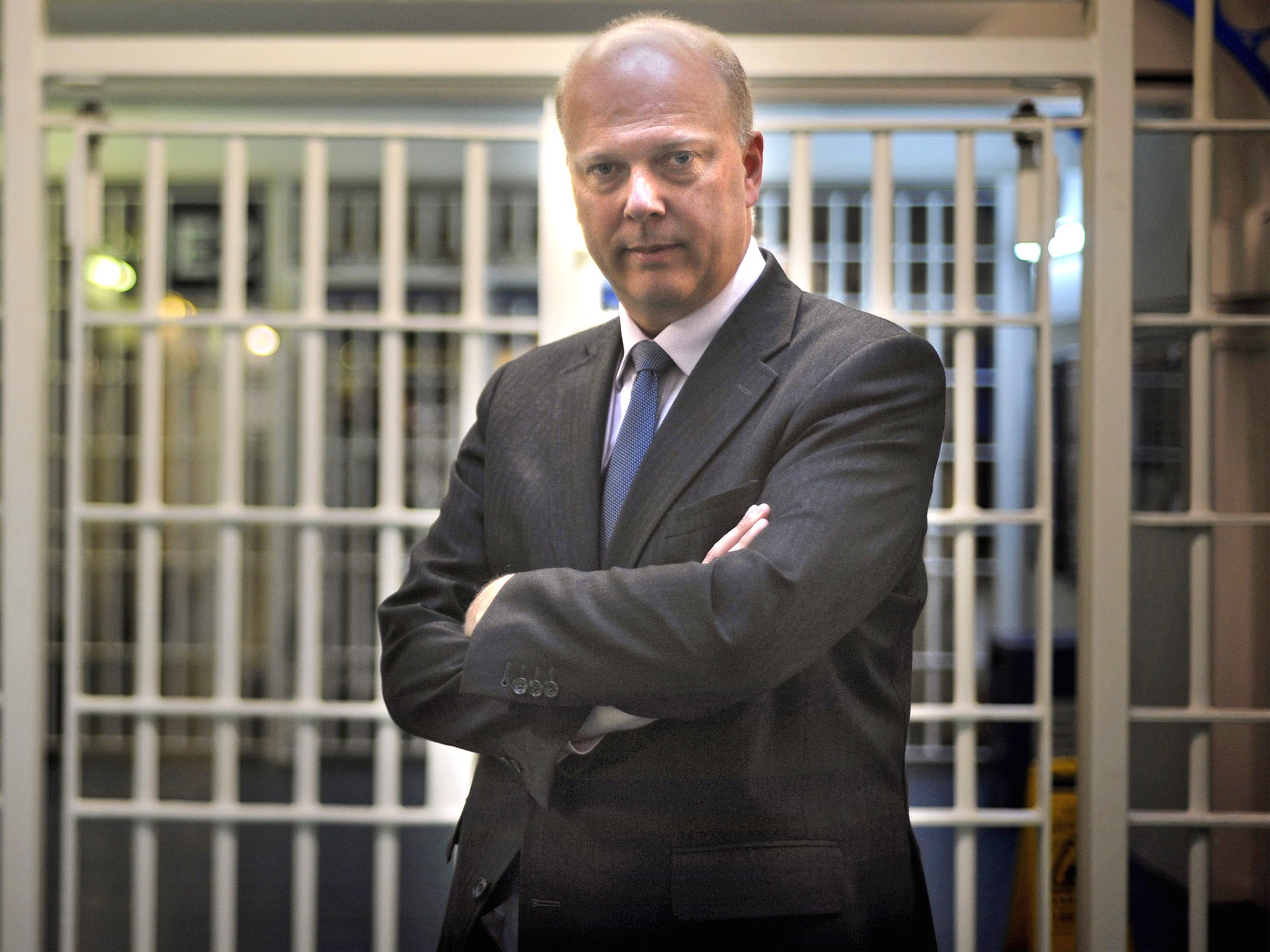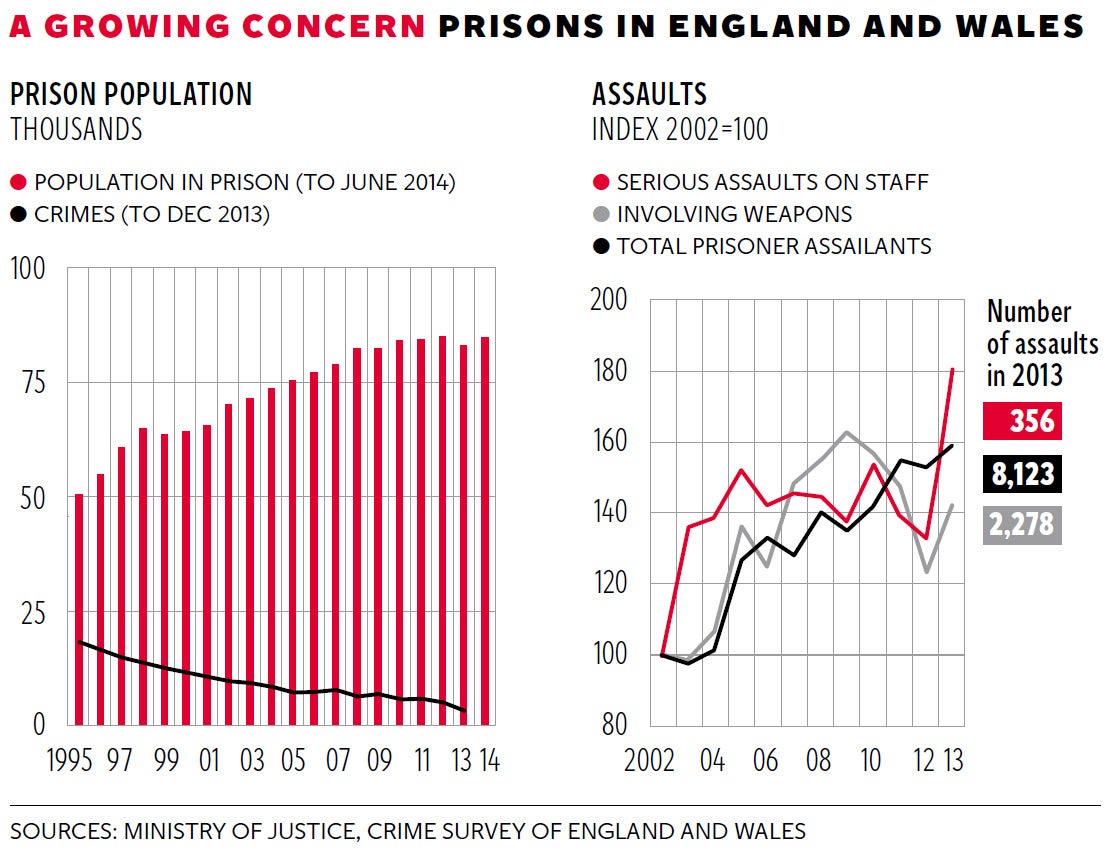Chris Grayling denies there is a prison crisis amid soaring suicides
Justice Minister claims increase in inmates is only due to ‘Savile effect’

The Justice Secretary, Chris Grayling, responded yesterday to criticisms of overcrowding, staff shortages and high levels of suicide and violence behind bars by insisting there was no crisis in the prison system.
Mr Grayling blamed a rise in numbers in part to a post-Jimmy Savile effect of more jailed sex offenders and said the service was dealing with the problems.
The Chief Inspector of Prisons, Nick Hardwick, told this paper last week that overcrowding and staff shortages were directly linked to the growing rate of suicides in prisons. Eighty-eight people killed themselves in English and Welsh prisons in the year to March compared with 52 in the previous year.
The body representing prison governors say that staff shortages mean it is impossible to run a safe and decent regime.
Mr Grayling told the BBC: “We’ve got a prison estate where violence today is at a lower level than it was five years ago. We’ve got challenges from an increased population that was not expected in the last 12 months. There are pressures which we are facing but there is not a crisis.”
Mr Grayling’s disputed claims focus on three main areas:
Violence
Mr Grayling carefully selected his statistics to claim – correctly – that the number of prisoner fights and assaults was lower compared with five years ago and two years ago. But not compared with the other three most recent years that he chose to ignore.
Attacks have increased in the last year, and the most serious of them were higher in 2013-14 than in any of the last five. The number of assaults on staff is also at its highest since 2007.
Other figures point to simmering violence within the prison estate. The prison service’s riot squad was called out more than 200 times last year, a near 60 per cent rise compared with the previous 12 months.
Prison numbers
The minister claimed that the two per cent increase in prison numbers was to a “significant extent” down to the jailing of more sex offenders. There has been a rise of sex offenders of 652 to 11,150 in the year to March 31 but his department’s own figures show a greater cause for the rise is the number of prisoners who are waiting longer to go on trial or to be sentenced after conviction.

Courts have been unable to cope with the extra demands. That has led to an 11 per cent increase in remand prisoners, equating to more than 1,200 prisoners – nearly double that of sex offenders.
And while the Government has trumpeted falling crime, stiffer sentences have kept the prison population rising .
Andrew Neilson, director of campaigns at the Howard League for Penal Reform, said: “The rise in convictions of people for historical sex offences is a relatively small driver behind the increase in the prison population. More significant are the facts that remand is being overused and ‘tough-on-crime’ political rhetoric is influencing sentencers’ behaviour.”
Staff shortages
The Howard League has calculated that prison officer numbers have dropped by 30 per cent between 2010 and 2013 during austerity cuts. It said that staffing cuts had led to a dangerous situation with inmates being locked up for longer in their cells, and library visits being cancelled. Mr Grayling said, “We are meeting those challenges; we are recruiting more staff”.
